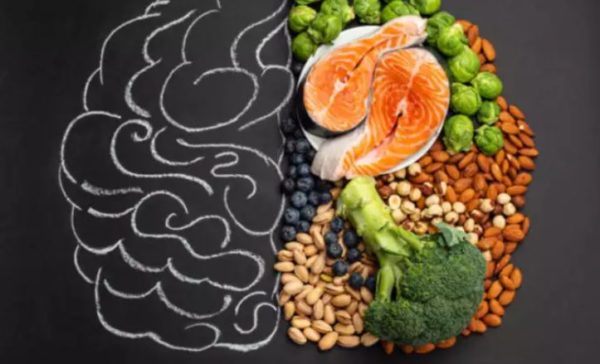As we age, the health of our brain becomes a critical consideration for maintaining overall well-being.
Cognitive decline is a natural part of aging, but emerging research suggests that certain vitamins and minerals can play a pivotal role in preserving brain function and preventing age-related decline.
1. Omega-3 fatty acids
Omega-3 fatty acids, particularly eicosapentaenoic acid (EPA) and docosahexaenoic acid (DHA), are integral components of brain cell membranes. These fatty acids exhibit anti-inflammatory and antioxidant properties, promoting healthy brain function. Fatty fish like salmon, walnuts, flaxseeds, and chia seeds are excellent sources of omega-3s. Regular consumption may reduce the risk of cognitive decline and contribute to overall brain health.
2. Phosphatidylserine
Phosphatidylserine is a phospholipid that is a crucial component of cell membranes, especially in the brain. It plays a role in neurotransmitter release and has been studied for its potential to support cognitive function. While the body produces phosphatidylserine, supplements derived from soy or other sources are also available.
3. Antioxidants (Vitamins C and E)
Antioxidants, such as vitamins C and E, play a crucial role in protecting the brain from oxidative stress. Oxidative stress, caused by free radicals, can contribute to age-related cognitive decline. Citrus fruits, berries, nuts, seeds, and leafy green vegetables are rich sources of vitamin C, while vitamin E is found in foods like almonds, sunflower seeds, and spinach.
4. Vitamin D
Vitamin D is not only vital for bone health but also plays a role in cognitive function. Receptors for vitamin D are found throughout the brain, and adequate levels may support neuroprotection. Exposure to sunlight is a natural way to boost vitamin D levels, and it can also be obtained from fortified foods and supplements.
5. B Vitamins (B6, B9, B12)
B-vitamins are essential for various brain functions, including the synthesis of neurotransmitters and the maintenance of myelin, the protective covering of nerve fibers. Vitamin B6 is found in bananas, potatoes, and poultry, while vitamin B9 (folate) is abundant in leafy greens, beans, and lentils. Vitamin B12, crucial for neurological health, is primarily found in animal products, and deficiencies can contribute to cognitive decline.
6. Magnesium
Magnesium is involved in over 300 enzymatic reactions in the body, including those related to brain function. It helps regulate neurotransmitters, promote synaptic plasticity, and enhance cognitive performance. Foods rich in magnesium include nuts, seeds, whole grains, and leafy green vegetables.
7. Zinc
Zinc is an essential mineral that plays a role in synaptic transmission and contributes to the structure of proteins in the brain. It is found in foods such as meat, dairy, nuts, and legumes. Adequate zinc levels support overall cognitive function and may contribute to neuroprotection.
8. Curcumin
Curcumin, the active compound in turmeric, has potent anti-inflammatory and antioxidant properties. Research suggests that curcumin may have neuroprotective effects, potentially reducing the risk of age-related cognitive decline. Including turmeric in cooking or taking curcumin supplements may provide cognitive benefits.





